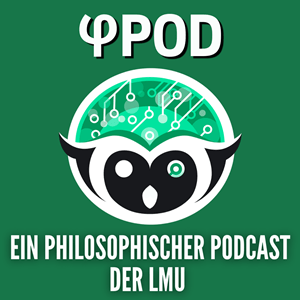
Have a listen
PhiPod is a podcast by the Philosophy Department of the Ludwig Maximilian University of Munich. It was funded by the Federal Ministry of Education and Research as part of the AI Campus project "AI & Ethics - Ethical Challenges of Artificial Intelligence". The 15-member editorial team is led by Dorothea Winter. The 26-year-old is doing her doctorate on the topic of AI.
In the summer semester of 2021, PhiPod published a total of 16 interesting interviews with AI specialists and experts from research, business and culture. You can listen to all episodes (in German only) at all popular podcast providers: https://linktr.ee/PhiPod.LMU